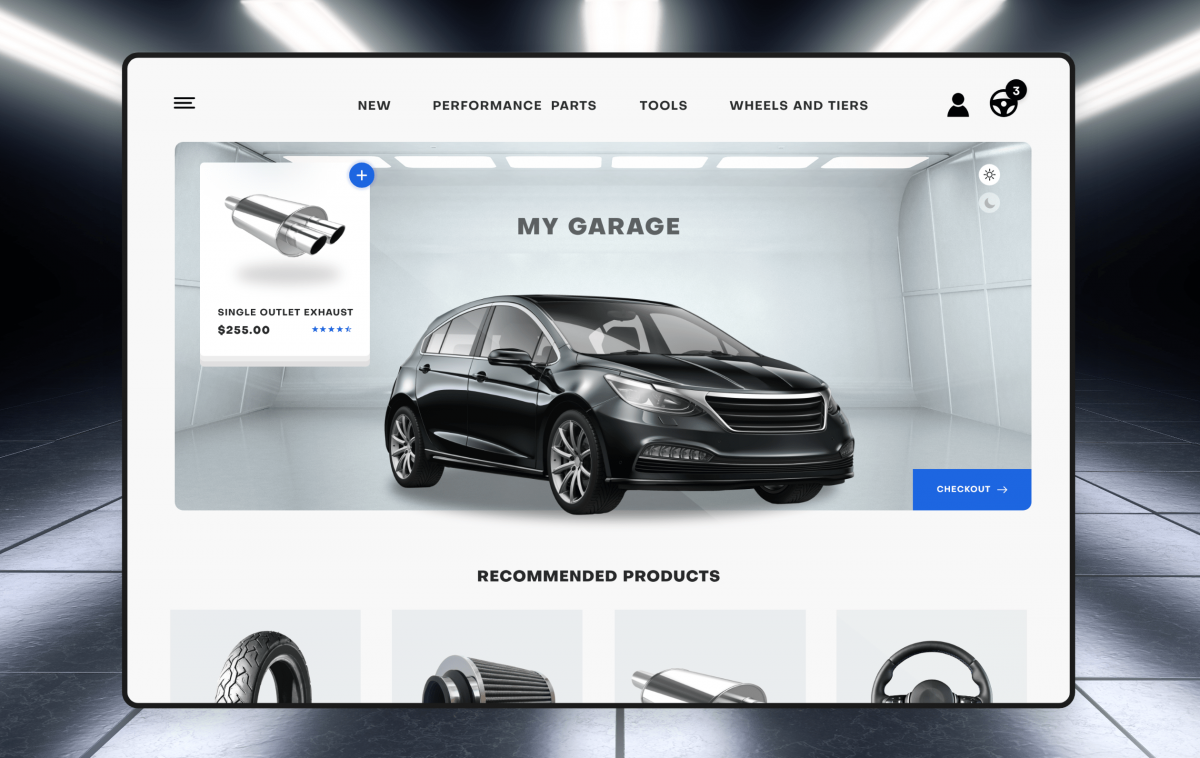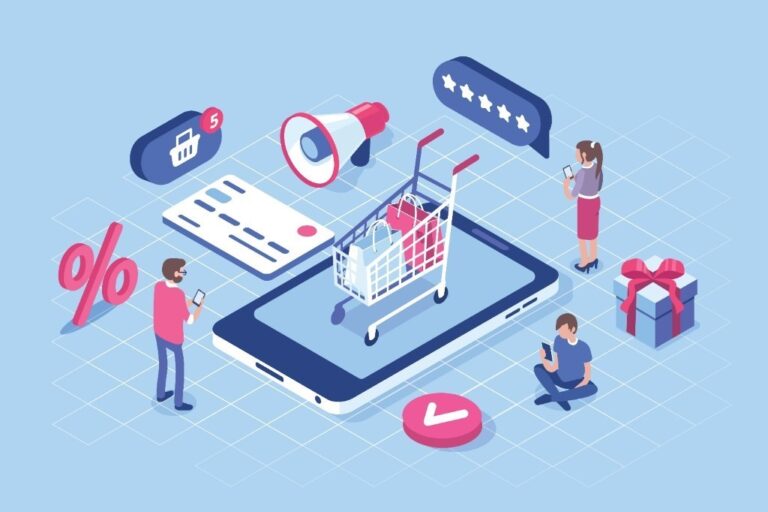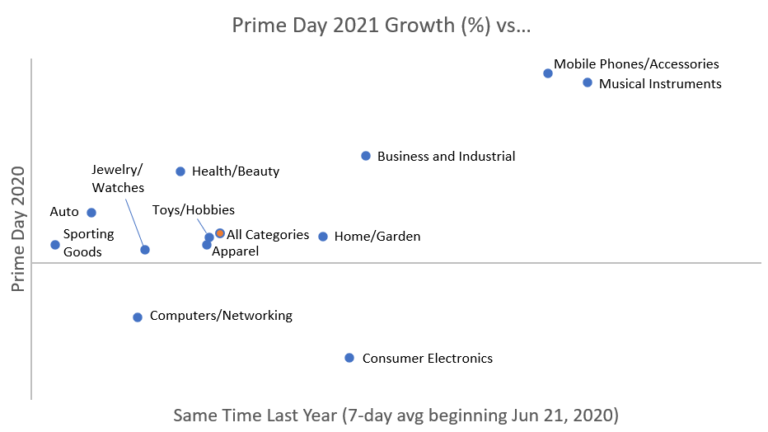
- Posted on
- • December 16, 2020

We’ve entered a new era in B2B commerce.
Today’s B2B buyers are demanding a digitalized environment to research and make their business purchases. Wholesale catalogs and phone orders have given way to online web portals, order fulfillment tracking, and B2C-like shopping experiences. Adapting your business to meet these changing buyer expectations will require you to make digital investments and focus on ecommerce, but the results will pay dividends: higher sales volume, average order value, and higher customer satisfaction—all with less error than ever before.
In this article, we take a look at what’s shaping the future of B2B commerce and the approaches that forward-thinking companies are taking to serve their buyers and stay competitive.
We’re experiencing massive disruption. Now what?
Changing buying habits and large-scale efforts to limit the spread of COVID-19 have disrupted B2B businesses, accelerating the move toward digitalization and total business transformation. Disruption is not the time for B2B companies to stay idle—this is the moment for offline sellers to take their B2B business online if they want to remain viable in their industries. Those who resist digitalization may find themselves crowded out of their market by competitors who seized the opportunity of digital transformation sooner.
Ecommerce has proven to be a vital lifeline for retailers and wholesalers alike, helping keep businesses operational during turbulent times. Here are the ways traditional practices are changing and what you need to prioritize in the new era of B2B:
Priority #1: Take Your Catalog Online
The past: Previously, browsing products was based on large, bulky paper catalogs, which offer businesses limited ability to update products, provide vital information, and create urgency in the buying process.
The new era: Although some sellers may be skeptical of ecommerce, the truth is that forward-thinking businesses are effectively using ecommerce to take their catalog business online and translate their large product libraries into searchable, user-friendly databases.
Priority #2: Refocus Your Inventory and Distribution
The past: Previous production and fulfillment processes were often scattered and inconsistent, demanding labor-intensive communication and coordination between multiple departments.
The new era: Businesses are using digital systems to relay live data and seamlessly automate processes between their warehousing, shipping providers, and buyers, ensuring timely fulfilment and minimizing downtime.
Priority #3: Transform Your Sales Team
The past: Traditional B2B practices revolved around paper logs and time-consuming manual orders.
The new era: Wholesalers are investing in online systems that enable their teams to help buyers place online orders, easily calculate account-based pricing, and go from being order-takers to becoming money-makers.
Priority #4: Upgrade the Buyer Experience
The past: Wholesale buyers often deal with a laborious sales cycle in which they have to shop via bloated paper catalogs, check with representatives for inventory availability, and place orders manually.
The future: An online business makes it easy to provide a unified customer experience with up-to-the-minute visibility, easy self-service options, and highly targeted messaging that meets the needs of buyers.

What Buyers Want: 5 Ways to Meet Them Through Ecommerce
Thriving in the new era of B2B commerce means simultaneously simplifying the online buying experience and supporting complex requirements for business buyers. Offline wholesalers, manufacturers, and distributors are now leveraging powerful ecommerce features and combining their sales, marketing, and distribution channels into one powerful engine.
Here are four approaches that leading companies are taking to meet customer demand and create a seamless customer experience:
1. Elevate the Buying Process
Using ecommerce, businesses are providing a superior shopping experience with easy order list views, flexible payments, intuitive search tools, and speedy checkouts. These developments allow buyers to conduct self-service purchasing and obtain full visibility into the status and composition of their orders.
2. Stay on Top of Availability
A well-connected ecommerce system provides seamless data integration, helping sellers offer real-time inventory visibility and maintain accurate product, category, payment, and shipping views.
3. Speed Up Fulfillment
Businesses are speeding up order fulfillment and accuracy with on-site shipping calculators and a fully-integrated backend portal that connects with their warehouse and shipping providers.
4. Focus on Customer Service
Digitalization allows sales reps to focus less on manual activities and instead leverage CRM data and unique site features like self-service quotes, interactive content, and on-page resources to increase customer satisfaction.
The Advantages of Taking Your Business Online
Digitalization presents the opportunity to scale your business, accelerate processes, and meet customer demand like never before. Here’s how B2B sellers can benefit from taking their businesses online:
Increase Sales
A fluid and compelling online experience makes it easier for the modern B2B buyer to consolidate their information, make quick decisions, and conduct purchases. This creates a clear path to conversion and a faster track for your business to generate sales and increase average order values.
Reduce Costs
Due to the efficiency provided by an effective B2B commerce system, you’ll have more precise control over your production, management, and fulfillment. This eliminates much of the costs that offline sellers have to confront when serving business buyers and improves your profitability.
Improve Customer Loyalty
Ecommerce allows you to make every B2B interaction fast, relevant, and connected, ensuring repeat business and boosting your customer loyalty and retention to new heights.
Boost Productivity
A digitally-enabled business allows B2B companies at every level to have true global reach and sweeping impact. What once required massive resources from managers, sales reps, and engineers can now all be handled easily and efficiently through one integrated platform.
Stay Competitive
An online business allows you to adapt quickly to changing markets and customer needs, make product and service changes on the fly, and lay the groundwork for scaling your business.
Moving Forward in the Age of Digital
Ready to get started? Whether you’re taking your business online for the first time or want to invest more in digital initiatives, download our quickstart guide and learn how to launch a functional B2B ecommerce site, make your inventory visible to buyers online, and empower your teams to handle customer inquiries digitally.




![[Guest Blog] How to Prepare for Last-Minute Holiday Shoppers](https://thegateway.net.au/wp-content/uploads/2021/02/guest-blog-how-to-prepare-for-last-minute-holiday-shoppers-768x340.png)


